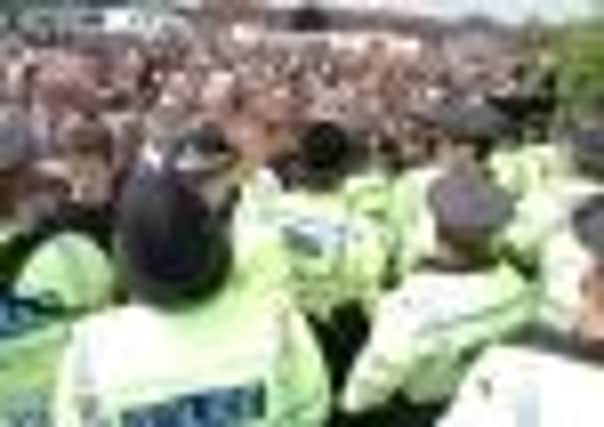Video: As Leeds row escalates, what you think about policing Elland Road


The club is taking legal action over West Yorkshire Police’s charging arrangements and last week issued a writ in the High Court.
On Monday Deputy Chief Constable David Crompton denied the force had made money out of policing matches.
Advertisement
Hide AdAdvertisement
Hide AdHe said in a statement: “We are disappointed that it has been asserted publicly that the force has made a profit out of the policing arrangements at Elland Road – in fact, nothing could be further from the truth.


“For an average game at Elland Road West Yorkshire Police deploy staff inside the ground, immediately outside to deal with crowd dispersal and traffic and also in Leeds city centre in case of trouble from unruly fans.
Mr Crompton said police sent an average of 100 officers to each game at Elland Road but that the club paid for only 40 of them.
For “high risk” games, including those against Millwall and Cardiff, the number of officers trebled.
Advertisement
Hide AdAdvertisement
Hide AdMr Crompton added: “In cash terms this represents an underpayment of between £20k and in excess of £100k per game, therefore it is LUFC which is being supported at the expense of the taxpayer.”
He said police had considered reducing the number of officers but that “a hard core of Leeds fans” had attracted more banning orders for hooliganism than almost any club in the country. “We cannot ignore this fact when determining the best way to police games safely,” Mr Crompton said.
The statement went on: “We note that Leeds United Football Club looks almost identical to the company that went into administration in May 2007 whilst owing the taxpayer £80k. This money has never been repaid nor has there been any offer to do so. As a result WYP has been compelled to require LUFC to pay in advance for policing each game in order to avoid the risk of further losses.
“Finally, the police, together with other public services, have to make unprecedented savings in forthcoming years. It may now be time to ask whether it is right for police officers continue to be regularly drawn to Elland Road from their local beats at taxpayers’ expense thereby subsidising the multi-million pound football industry?”